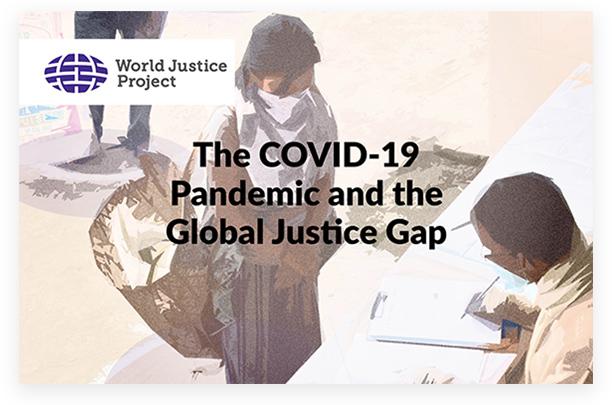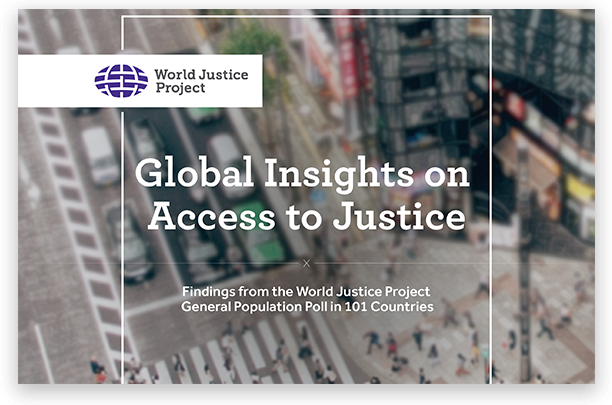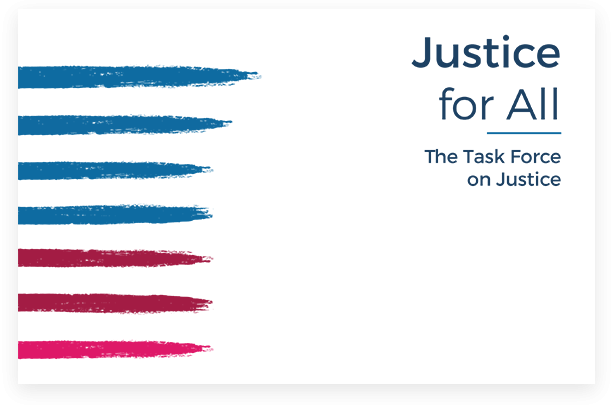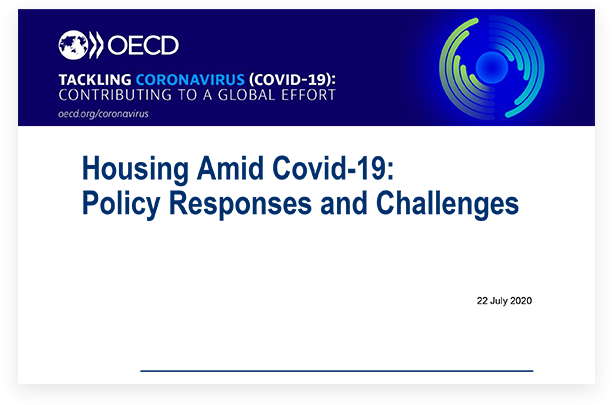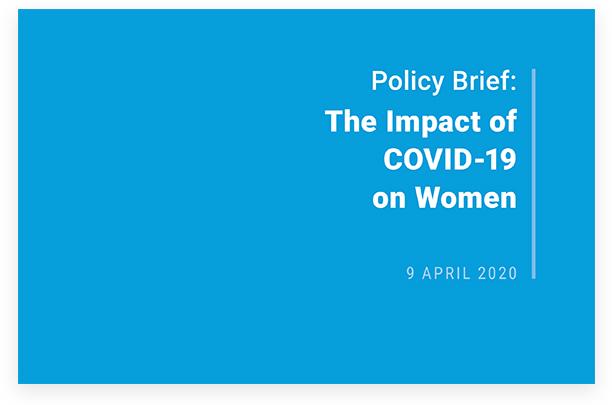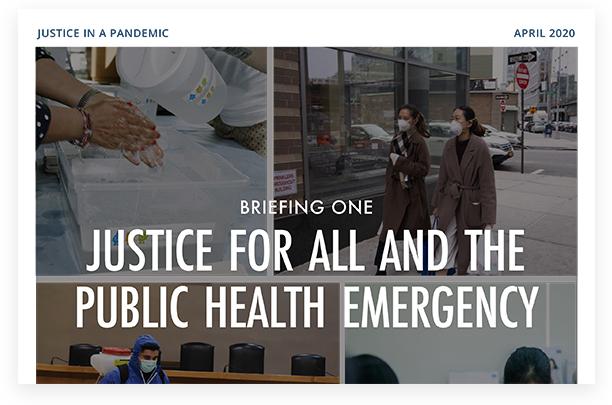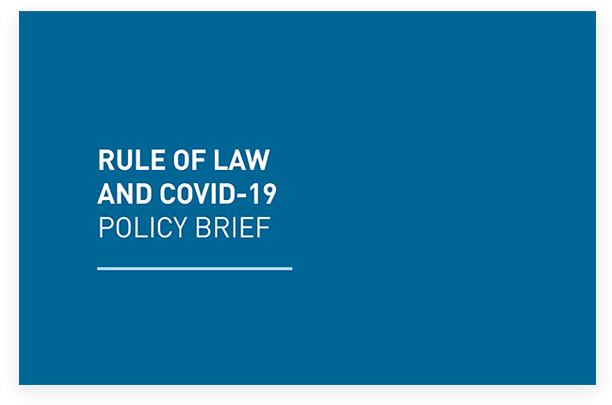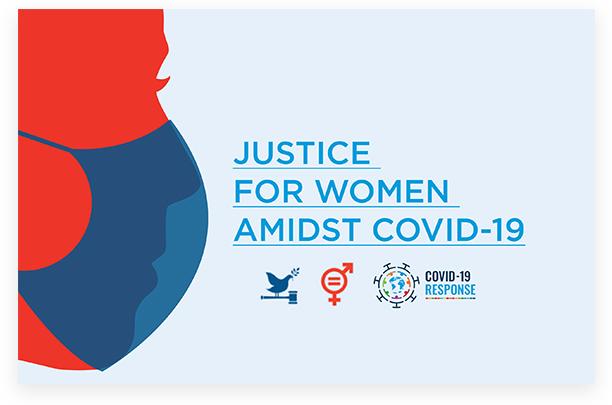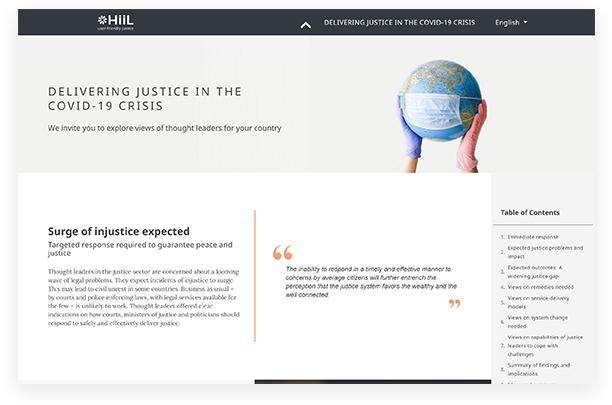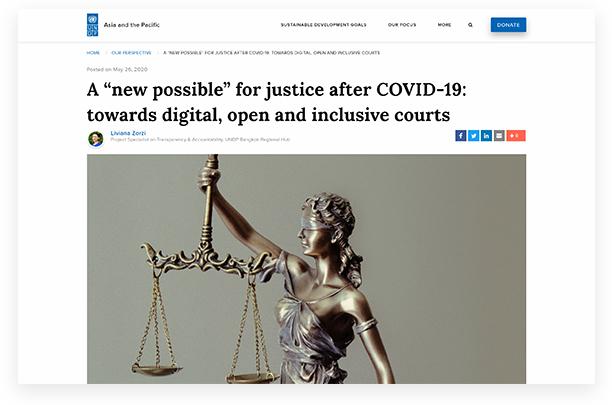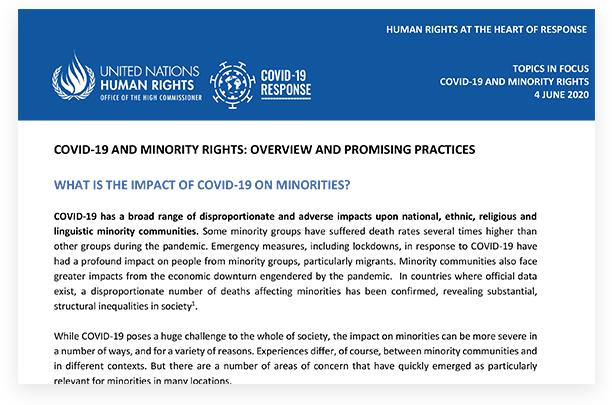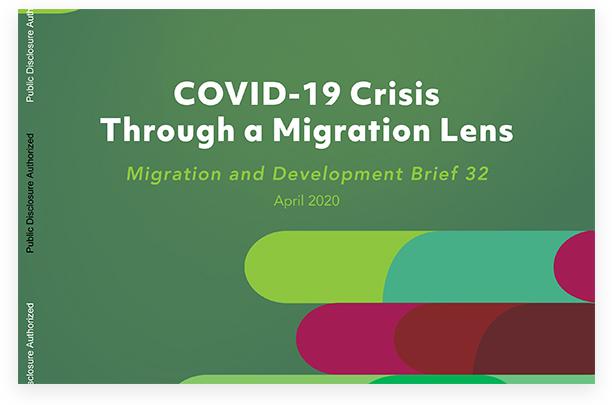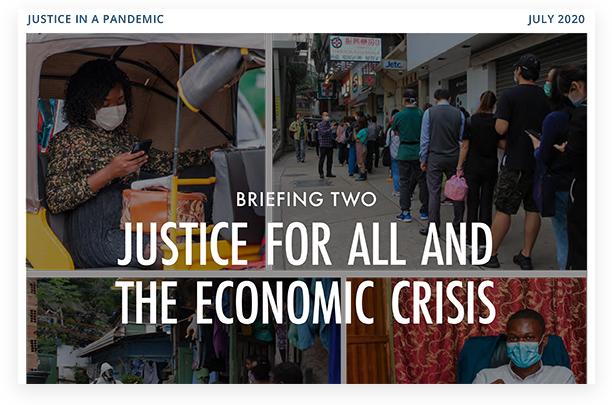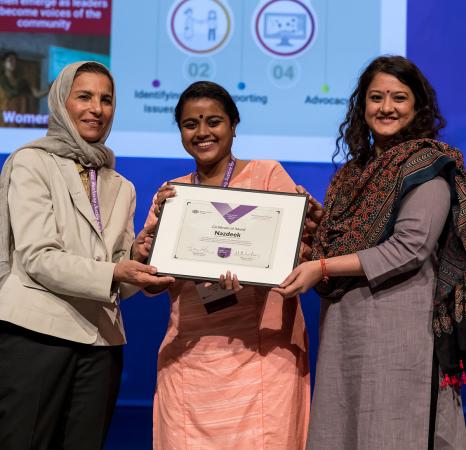Access to Justice for All Finalists
- Ability to Pay
Global Justice Solutions, United States
- Addressing Online Violence Against Women and Gender Minorities in Pakistan
Digital Rights Foundation, Pakistan
- COVID-19: Seguras en Casa (COVID-19: Women Safe at Home)
UNDP Mexico, Mexico
- Improving Maya Women's Access to Justice in Rural Guatemala
Women's Justice Initiative, Guatemala
- Increasing Access to Justice and Providing Legal Education Through Online Learning Platforms and Virtual Courts
Justice Defenders, Kenya/Uganda/Gambia/Regional
- LegalApp
Colombia Ministry of Justice, Colombia
- rAInbow: Chatbot to Support Victims of Domestic Abuse
AI for Good, South Africa/Global
- Supporting Survivors: Women's Rights
The Lotus Flower, Iraq
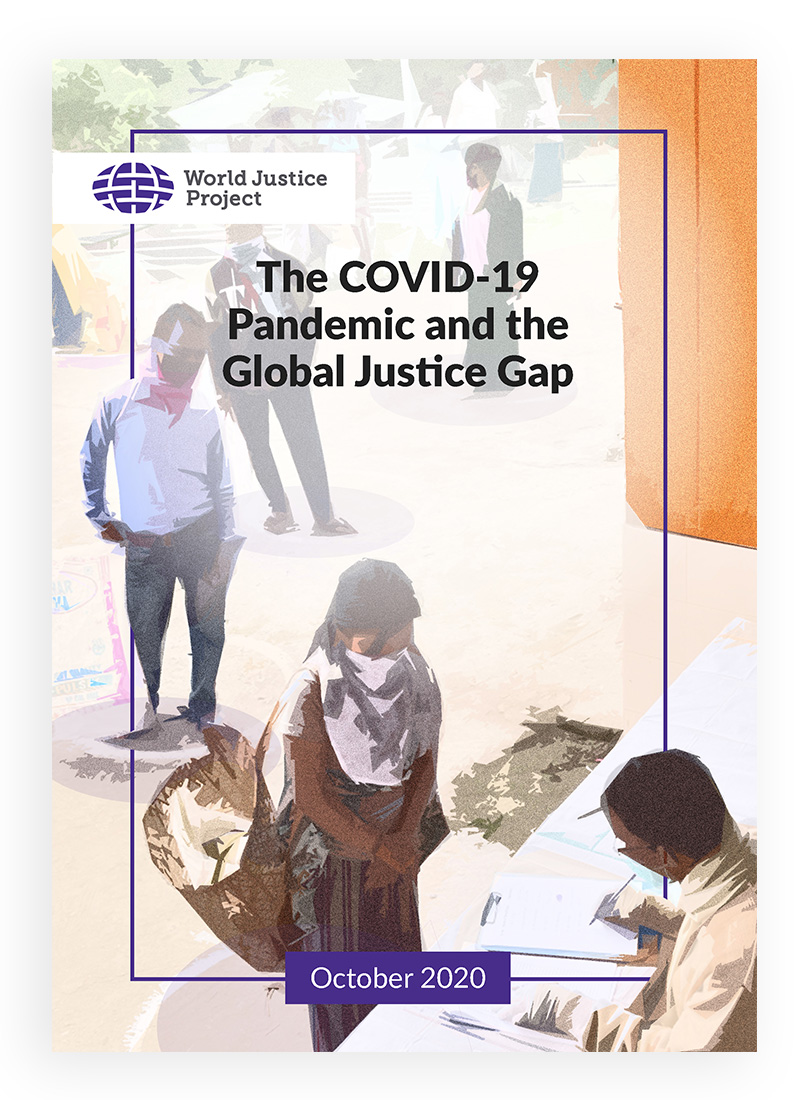
Problem Statement
The COVID-19 pandemic has laid bare significant deficits and inequities in the progress toward fulfilling the promise of UN Sustainable Development Goal 16 to "provide access to justice for all," taking its greatest toll on those who have been traditionally excluded from justice systems and plunging more people into this plight. While the pandemic has created new challenges for reaching "justice for all" by 2030, it has also highlighted the importance and new opportunities for doing so.
The pandemic is significantly worsening an already serious global gap in access to justice. In 2019, prior to the pandemic, the Task Force on Justice, led by the governments of Argentina, the Netherlands, and Sierra Leone and drawing on research by the World Justice Project, estimated that 5.1 billion people globally have unmet justice needs. This global justice gap includes 2.1 billion people employed in the informal economy, 2.3 billion who lack proof of housing or land tenure, 1.1 billion people who lack proof of legal identity, and 1.4 billion people with unmet civil or administrative justice needs.
As the pandemic has rippled across the globe, the toll that it and the associated economic crisis are taking is, in many countries, most severe for those who fall in the justice gap—those who lack legal identity or have uncertain migration status; those lacking secure land tenure or housing rights; those working in the informal economy; and women and girls, minorities, and other vulnerable groups at risk of having their justice needs unmet. These impacts are still unfolding and more research will be required to fully evaluate the effects of the pandemic, but early evidence indicates that it is particularly devastating for these disadvantaged cohorts. Moreover, the pandemic is widening key dimensions of the justice gap, with a growing demand for economic justice from systems that have seen their already inadequate capacity further eroded, as the economic crisis and massive unemployment push millions more into the informal sector and threaten their housing security.
The pandemic has also strained the capacity of justice systems to meet these growing justice needs, in part due to the scaling down of justice services by justice institutions to comply with social distancing and other public health measures. Prior to the pandemic, justice systems the world over, in developing and developed countries alike, were already failing to meet people's everyday legal needs. According to WJP survey data, these unmet legal needs have significant negative consequences for people’s well-being, including physical and mental health.
Guidelines for Applicants
Building on research and analysis by the World Justice Project and other organizations, the World Justice Challenge encourages project entries that address access to justice for all issues posed or exacerbated by the pandemic including, but not limited to:
- Ensuring legal identity for all;
- Addressing issues of land tenure and housing rights, including eviction, substandard housing, informal settlements, homelessness, dispossession, and land grabs that target indigenous lands;
- Protecting those working in the informal economy;
- Addressing gender-based violence;
- Addressing the needs of migrants, refugees, and other forcibly displaced persons;
- Addressing discrimination, in the immediate and long term, against women and girls, and religious, ethnic, and racial minorities, who are at heightened risk of infection and other negative effects of the pandemic;
- Addressing the strained capacity of justice systems to meet growing justice demands, particularly around healthcare, gender-based violence, housing, employment, and debt issues exacerbated by the pandemic; and
- Facilitating the functioning of justice systems disrupted by the pandemic, including through the use of digital, online, and new technological approaches.
Webinar Event Recording
Access to Justice for All and the COVID-19 Pandemic: Recommendations for Action
Co-sponsored by World Justice Challenge thematic partners the International Development Law Organization (IDLO) and Pathfinders for Peaceful, Just and Inclusive Societies, this discussion focused on problems in achieving access to justice for all that have been raised and exacerbated by the pandemic. Panelists also discussed recommendations for action needed to address underlying challenges, support an effective recovery process, and build back toward more just, rule-of-law-based societies. Download the webinar summary (PDF).
Access to Justice for All Resources
"The COVID-19 Pandemic and the Global Justice Gap"
World Justice Project
"Global Insights on Access to Justice"
World Justice Project
"Justice for All: Final Report of the Task Force on Justice"
Pathfinders for Peaceful, Just and Inclusive Societies
"The Impact of COVID-19 on Women"
UN Women
"Justice in a Pandemic - Briefing One: Justice for All and the Public Health Emergency"
Pathfinders for Peaceful, Just and Inclusive Societies
"Rule of Law and Covid-19: Policy Brief"
International Development Law Organization (IDLO)
"Justice for Women Amidst Covid-19"
UN Women, International Development Law Organization, United Nations Development Programme, United Nations Office on Drugs and Crime, Pathfinders, World Bank
"Delivering Justice in the Covid-19 Crisis"
Hague Institute for the Innovation of Law
"Grassroots Justice in a Pandemic: Ensuring a Just Response and Recovery"
Justice For All; Pathfinders for Peaceful, Just and Inclusive Societies
"Covid-19 and Minority Rights: Overview and Promising Practices"
United Nations Human Rights, Office of the High Commissioner
"Covid-19 Crisis Through a Migration Lens"
World Bank Group, Knomad
"Justice in a Pandemic - Briefing Two: Justice for All and the Economic Crisis"
Pathfinders for Peaceful, Just and Inclusive Societies
Access to Justice for All Thematic Partners

